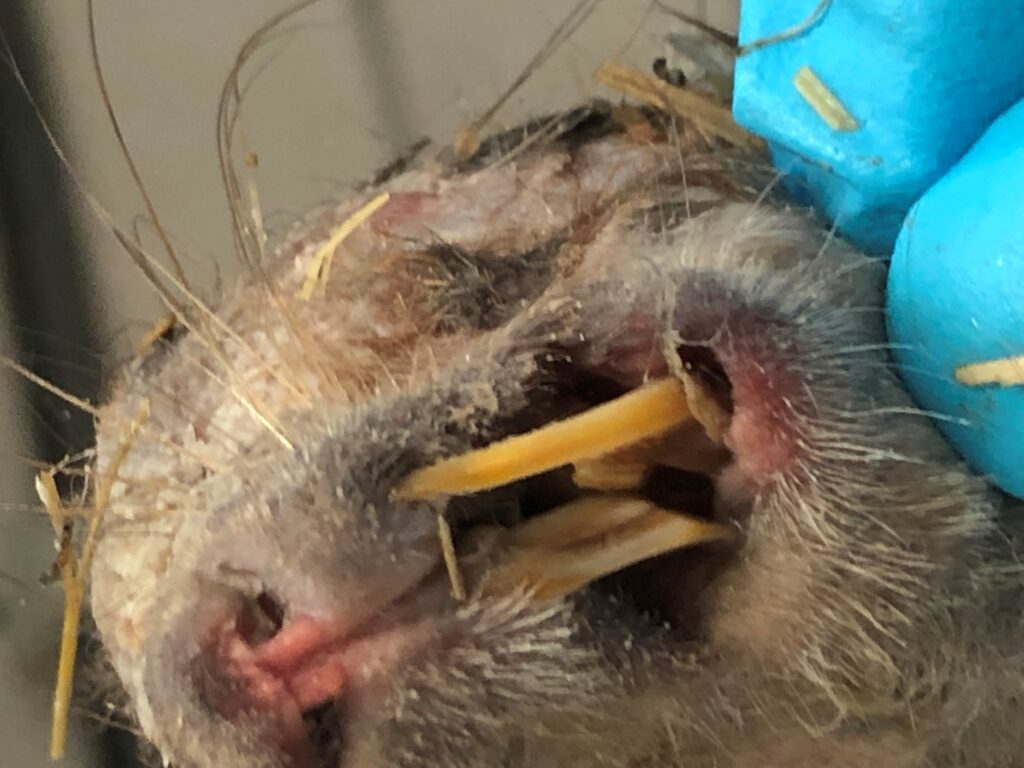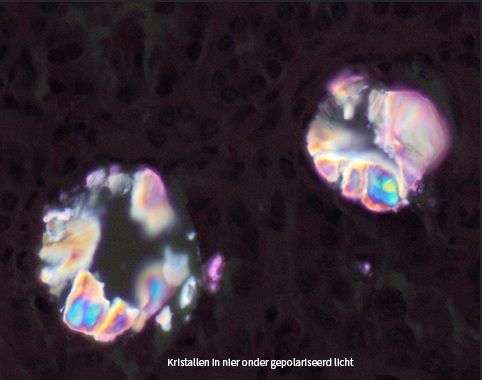

The red squirrel (Sciurus vulgaris, hereafter referred to as the squirrel) is a protected species in the Netherlands. Research by the Dutch Wildlife Health Centre (DWHC) on dead squirrels has found that trauma is the most common direct cause of death. This trauma can be caused by a fall, but also by collisions or predation. In some squirrels that died from trauma, diseased or parasites were found that had weakened the animal, making it more susceptible to trauma. The disease toxoplasmosis is also often the cause of illness and death.
Not all squirrels that suffer from trauma die as a direct result from it. In some squirrels, inflammations and abscesses were found that may have developed after previous trauma.

For example, in one squirrel, a serious abnormality was found in the mouth, possibly caused by earlier trauma. The squirrel had lost a tooth in the lower jaw, which allowed the upper teeth to grow very long and curve inward. As a result, the squirrel could no longer eat properly.
Tularemia, also known as “rabbit fever”, is a disease that occurs more frequently in the Netherlands and until now had mainly been found in hares and, in a few cases, in beavers. In 2023, this deadly disease caused by the bacterium Francisella tularensis, was detected in a squirrel in the Netherlands for the first time. In the area where this squirrel was found, tularemia had previously been detected in hares.
In 2023, a squirrel was found that did not behave abnormally but was severely weakened. She was taken in by a rescue centre and died within a few hours. Examination revealed that this squirrel had abnormalities with crystal formation in the kidneys. Microscopic examination suggested that this squirrel had probably ingested antifreeze and ultimately died from it.

One of the more notable parasites found by the DWHC in squirrels is a bladderworm. This bladderworm is the larval stage of a tapeworm that is found in mustelids, Taenia martis. Squirrels and other rodents are the “intermediate hosts” in which these bladderworms develop. The definitive hosts of this variant are mustelids.
For more information about research on squirrels: https://dwhc.nl/en/species/red-squirrel-en/